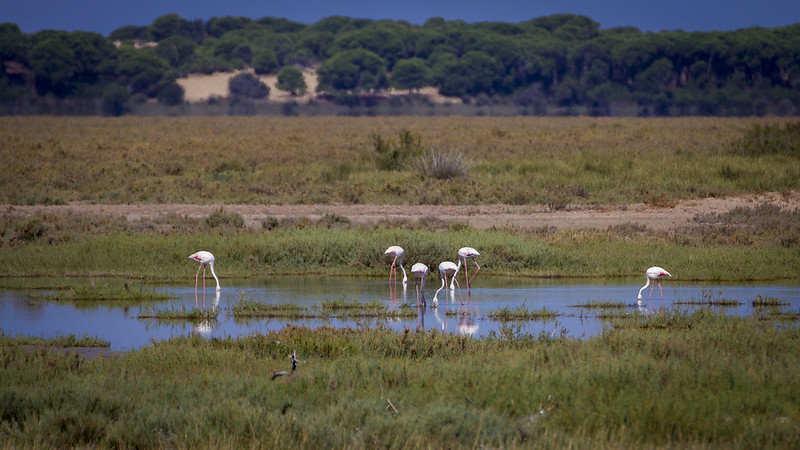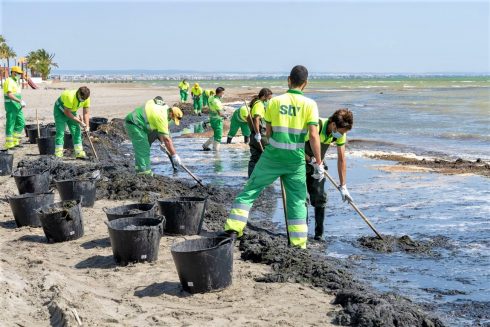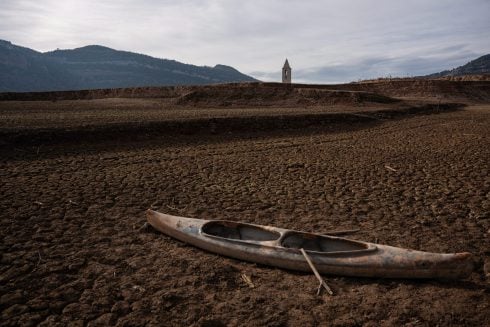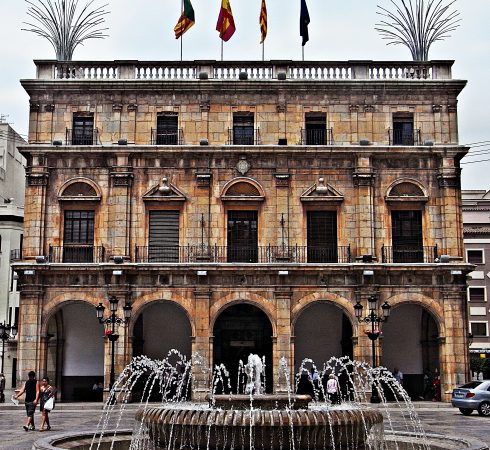A NEW report by the WWF has revealed the shocking extent of water theft from endangered habitats including Doñana National park in Andalucia, Las Tablas de Daimiel wetlands in Castilla La Mancha and the Mar Menor in Murcia.
Groundwater from aquifers – an underground layer of water-bearing permeable rock – is being looted at an alarming rate to irrigate vast vegetable and fruit growing zones without proper control by Spanish authorities, the WWF investigation revealed.
The stolen water is enough to fill 65,000 Olympic-sized swimming pools each year or the equivalent of half the annual water supply to the city of Madrid.
The report published on Tuesday (October 19) followed a year-long investigation by the WWF and highlights the extraction in four key areas, which it insists are not isolated cases but are the worst examples of nationwide negligence by Spanish authorities to impose proper controls.
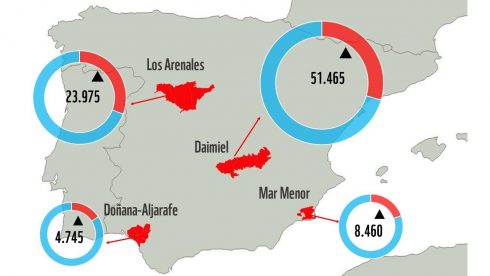
Doñana National park, a wetland home to 2,000 species of wildlife where Iberian lynx roam and flamingos graze, already has the highest protection status and is listed as a UNESCO World Heritage site.
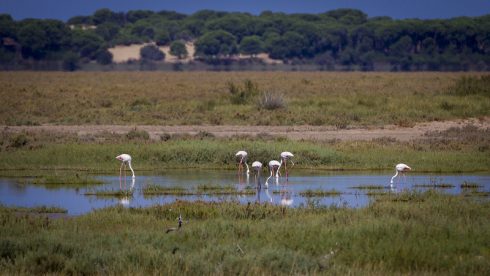
Yet 80% of its natural water supplies have already been drained to irrigate the rice paddies and strawberry fields that surround it.
In June, the EU’s Court of Justice ruled that Spain had broken EU law by allowing the excessive extractions of groundwater from the marshlands after 1,000 illegal boreholes and 3,000 hectares of illegal crops were discovered.
Meanwhile in Murcia, the Mar Menor is being slowly poisoned as illegal nitrogen-based discharges from farms on the Campo de Cartagena causes the build-up of algae that has cut oxygen levels in the lagoon, leaving marine life to suffocate.
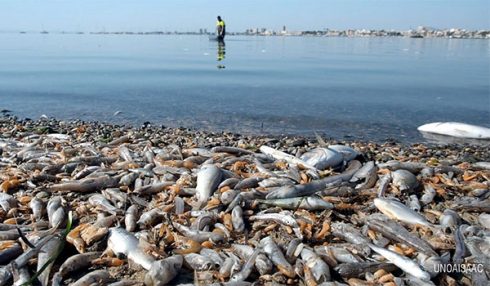
“If this is happening in places like the Doñana marshes, the Tablas de Daimiel or the Mar Menor, what is going on in those areas which aren’t under scrutiny?” asked Rafael Seiz, a scientist working with the WWF water programme.
The Olive Press has learnt of a new ecological disaster looming at the Iznajar Reservoir in Cordoba province where fish have been washing up dead in huge numbers over the last few weeks.
Local expat resident John Pearce who regularly walks his dog along the banks of the reservoir reported that the water level was the lowest he had seen in 20 years.
“While water levels do drop significantly during a long hot summer, the water is about 20% of its usual level at this time of year,” Pearce told the Olive Press. “Then last week dead fish started washing up. I counted around 200 fish in just one 20m stretch of shore.”
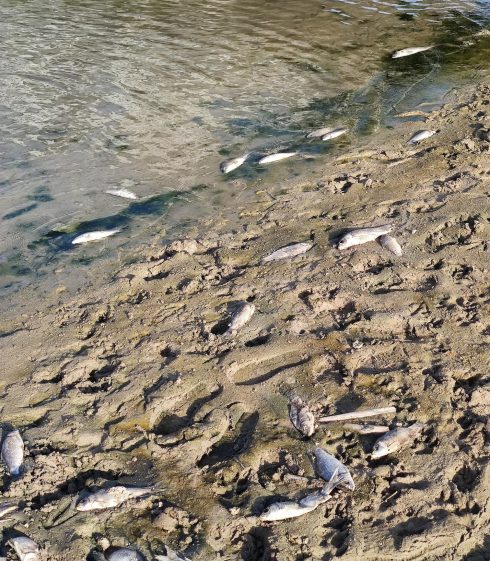
Locals believe water is being drained off to fill rice fields in nearby Antequera but the town hall has provided no answers.
The WWF blames local authorities for failing to clampdown on illegal farming and the central government for failing to provide the funds and means required to monitor water theft.
“There is neither a sound nor specific assessment of all of the water abstractions with a permit from the River Basin Authorities, or a formal estimation of the impact and magnitude of the illegal use of groundwater,” said the study.
“The WWF wants the authorities to act urgently and effectively to tackle this situation. Illegal water use is a crime against biodiversity but also against those water users that fully comply with the law and use water responsibly,” it concluded.
READ ALSO:
- Campaigners send Mar Menor lagoon pollution complaint to EU which pins blame on Spain’s politicians
- Three hundred illegal wells shut down in Donana in bid to stop landowners draining wetlands

